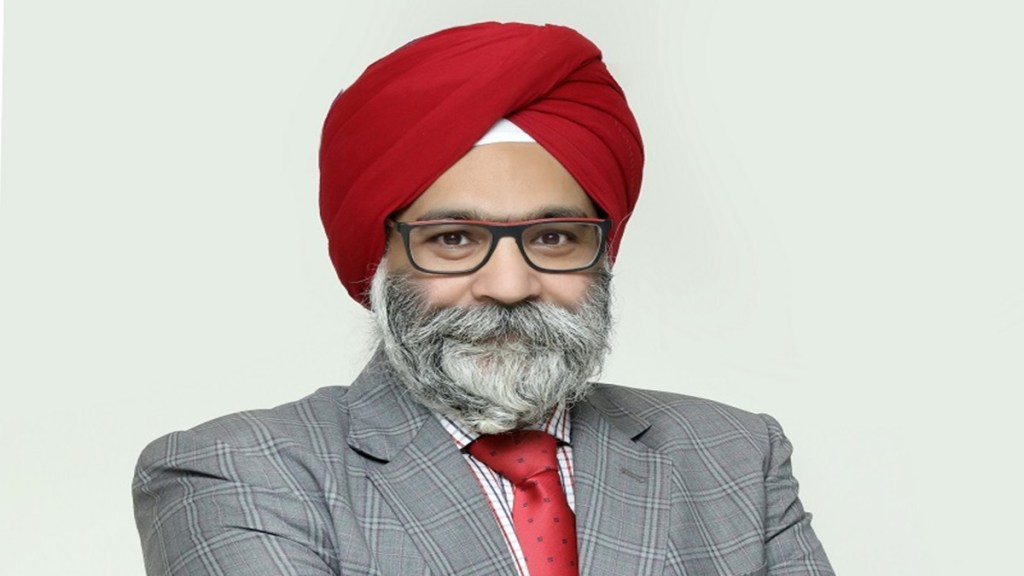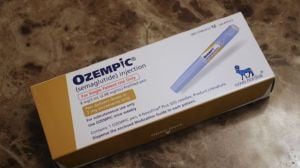As non-communicable diseases (NCDs) are rising in India, there has been an immense impact in countries like India. Gagandeep Singh Bedi, Managing Director, AstraZeneca Pharma India told Financial Express.com that AstraZeneca has some significant plans of introducing the global pipeline of drugs and therapies in the country.
“Given what a significant unmet need in the country is, we have been consistently launching brands even during the pandemic. A couple of weeks back, we announced our Chronic Kidney Disease (CKD) therapy with dapagliflozin. So, dapagliflozin is available in the market but what we have introduced is we added CKD indication to it which is really a paradigm shift for patients who suffer from this chronic condition. In addition to this, yes we have very significant plans to introduce our global pipeline in the country and we will continue to look at India as an opportunity for its significant unmet needs and improve it through the drugs we make,” Gagandeep Singh Bedi told Financial Express.com.
Last week, the Federation of Indian Chambers of Commerce & Industry (FICCI) and AstraZeneca conducted a meeting to lay the foundation of Partnership for Health System Sustainability and Resilience (PHSSR) and how it can be relevant to the country’s healthcare system.
Industry experts like Arun Chawla, Director General, FICCI, Leif Johansson, Chairman, AstraZeneca, Dr K. Madan Gopal, Senior Consultant, NITI Aayog, Government of India, Gagandeep Singh, Chair-FICCI Pharma Committee and Managing Director, AstraZeneca India and Dr Y. K. Gupta, President, AIIMS Bhopal & AIIMS Jammu, Former Dean (Academics), & Head, Department of Pharmacology, AIIMS New Delhi among others.
Bedi told Financial Express.com that with respect to diseases like diabetes and metabolic disorders the challenge in India is significant.
“We are basically focused on cardiovascular diseases, renal diseases, and metabolism as one area of key focus. The other area of key focus is towards respiratory diseases. Another area of focus is oncology and along with that we have got the rare disease unit which post-our Alexion acquisition is now part of the portfolio. All these three diseases today…if you look at India clearly we have a very very significant challenge when it comes to either diabetes or metabolic diseases. Some of the reports called us now as the Diabetes Capital of Cardiovascular and metabolic diseases. Indians are dying younger due to cardiac diseases…10 years before any other diseases. So, I think those are areas of significant concern and solution that clearly we have a strong focus on. Here again…like I said…even in my address…that we are focusing more on the outcomes…and you know it’s not just about the treatments but its about the whole ecosystem that you create around patients which is about lifestyle modifications, nutrition and therefore you create far more sustainable results…that’s where our focus is,” Bedi told Financial Express.com.
Singh also pointed out that as the number of cases in respiratory illness and oncology is rising, it reveals that the cases are not being detected timely.
“…one of the data that we see in India is that we have a delayed diagnosis and therefore our outcomes suffer because of that. So, specifically at AstraZeneca, we are really looking at not just providing drug solutions but also looking at being able to open the funnel of the patient journey whether it is awareness and detection or treatment and adherence,” Bedi said.
The Country Head of AstraZeneca Pharma also pointed that the company has made significant contributions to early diagnostics systems in India.
“In the last 3-4 years, we have been able to enhance levels of diagnostics in India…like example BRCA mutations tests…we were able to develop companion diagnostics in the country while working with our partners. For precision medicines to work, you need a correct diagnosis. So, that’s one of the things that we are doing. The other aspect is…how do you improve early diagnosis? Therein we have bought partnerships with Qure AI. Now Qure.AI has been part of our e-catalyst network of which we have a centre of excellence in Jodhpur with AIIMS Jodhpur. We are scaling that up in 21 countries including India,” He told Financial Express.com.
According to Bedi, the whole objective of Qure AI is to read X-Rays, pick up potential nodules which can help in further investigations.
“This area again needs improvement and then you come to the drug therapy and even in drug therapy we have been able to introduce our medications with patient access programmes and the fact that we have been able to introduce within 18-24 months of global launches…so Indian patients have access to latest medications through an access programme much earlier than they would have had in the past and the last bit is around adherence…where we are focusing on patient support programmes to make sure that the patients are able to adhere to their treatment and get financial solutions as well,” Singh told Financial Express.com.
On the growing prominence of targetted immunotherapies and their feasibility in countries like India where out-of-pocket expenditure is higher, Bedi told Financial Express.com that over the years they have become a better alternative to toxic chemotherapies.
“If you really look at it…we introduced our immuno-oncology therapy almost 4 years back. Today, if you look at it the opportunity is humongous with some of these therapies…because what these immuno-oncology drugs are doing is…indication after indication they are showing very significant efficacy and results and turning our fight against cancer. With these drugs the side-effects are far more manageable than the toxic chemotherapies that we have seen in the past. So, that being given the case…I think it is more suitable for patients. Having said that most of us in the industry are very conscious of the fact that in India patients pay out of pocket and that is why our pricing index is much lower in India as compared to the global levels so that more and more patients can afford it. Along with that, we run access programmes to make sure that more patients are able to afford the therapies,” Bedi said.
According to Gagandeep, people are getting more health conscious, government expenditure on healthcare is rising and the overall focus on healthcare is increasing in the country.









